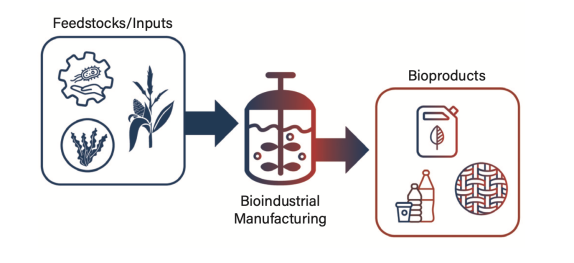A well-prepared, highly skilled technical workforce in bioindustrial manufacturing is essential to realize the full potential of the emerging bioeconomy.
The rapid pace of discovery, innovation, and commercialization of biologically produced commodity chemicals, textiles, energy, materials, and food products of modern society will require more than 1.1 million workers. These high-paying jobs will fuel a projected $4–30 trillion global bioeconomy in the near future (1).
Recent advancements in engineering biology have led to a paradigm shift from petroleum-based chemical manufacturing to biologically sourced products. Such a shift can impact grand challenges such as climate change, food security, energy independence, and environmental sustainability. An estimated 60% of the materials in the global consumer product supply chain could, in principle, be produced biologically, which emphasizes the importance of commercial-scale engineering and sustainable production of biobased products (2) (Figure 1).

▲Figure 1. Bioindustrial manufacturing takes biomass-based feedstocks and transforms them into commodity chemicals and other useful products.
This article describes a concerted approach to building and sustaining the large and diverse workforce needed to fuel the growing bioeconomy...
Would you like to access the complete CEP Article?
No problem. You just have to complete the following steps.
You have completed 0 of 2 steps.
-
Log in
You must be logged in to view this content. Log in now.
-
AIChE Membership
You must be an AIChE member to view this article. Join now.
Copyright Permissions
Would you like to reuse content from CEP Magazine? It’s easy to request permission to reuse content. Simply click here to connect instantly to licensing services, where you can choose from a list of options regarding how you would like to reuse the desired content and complete the transaction.
